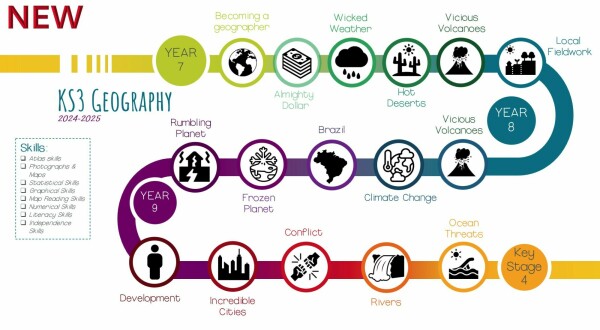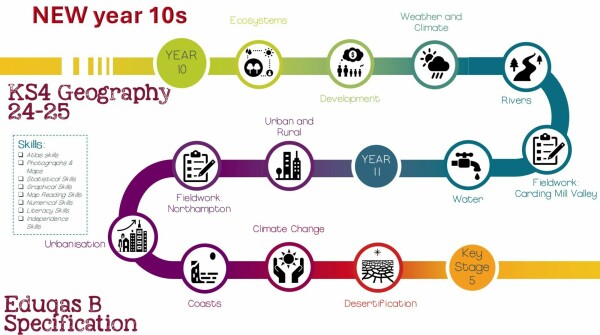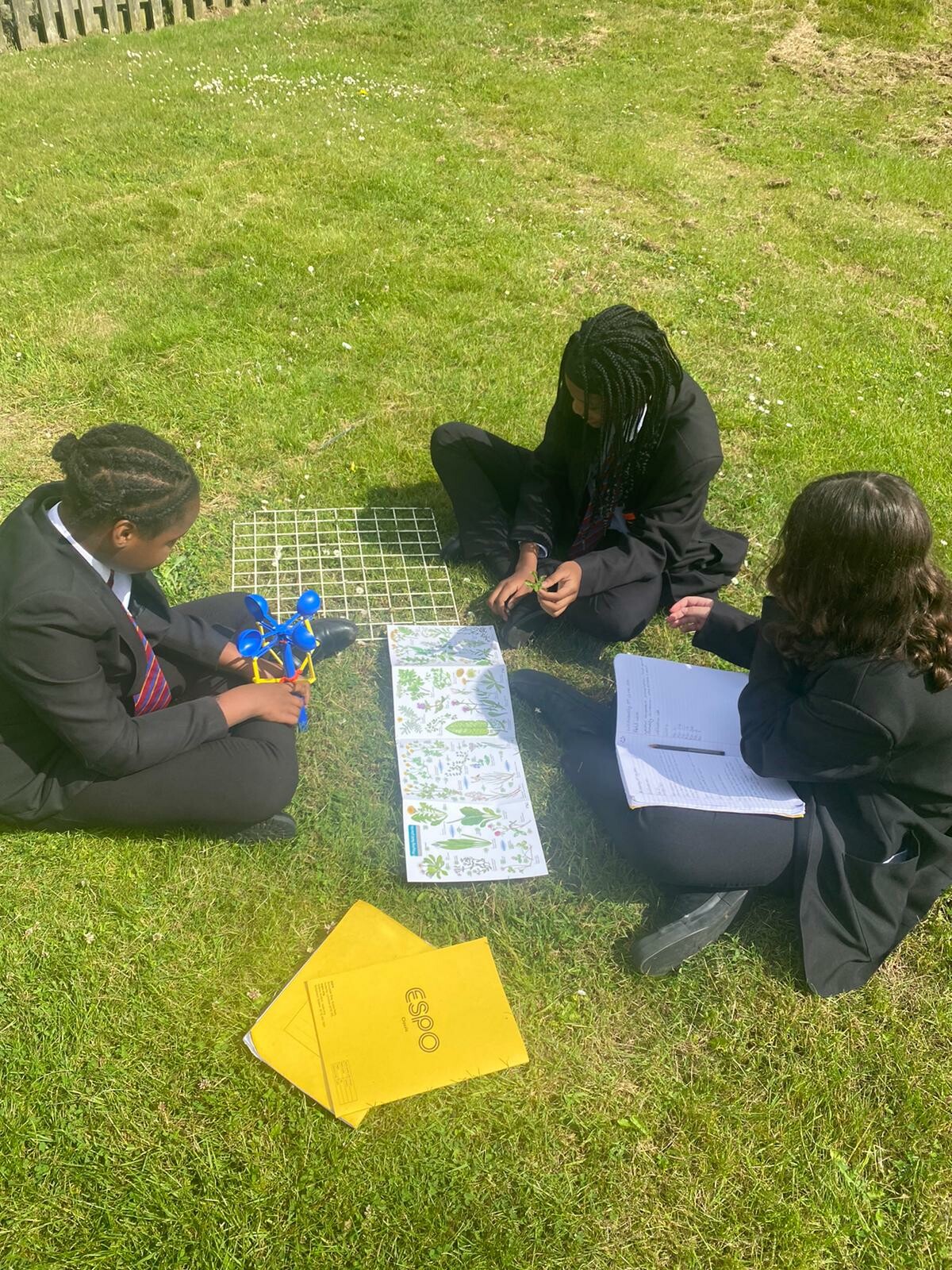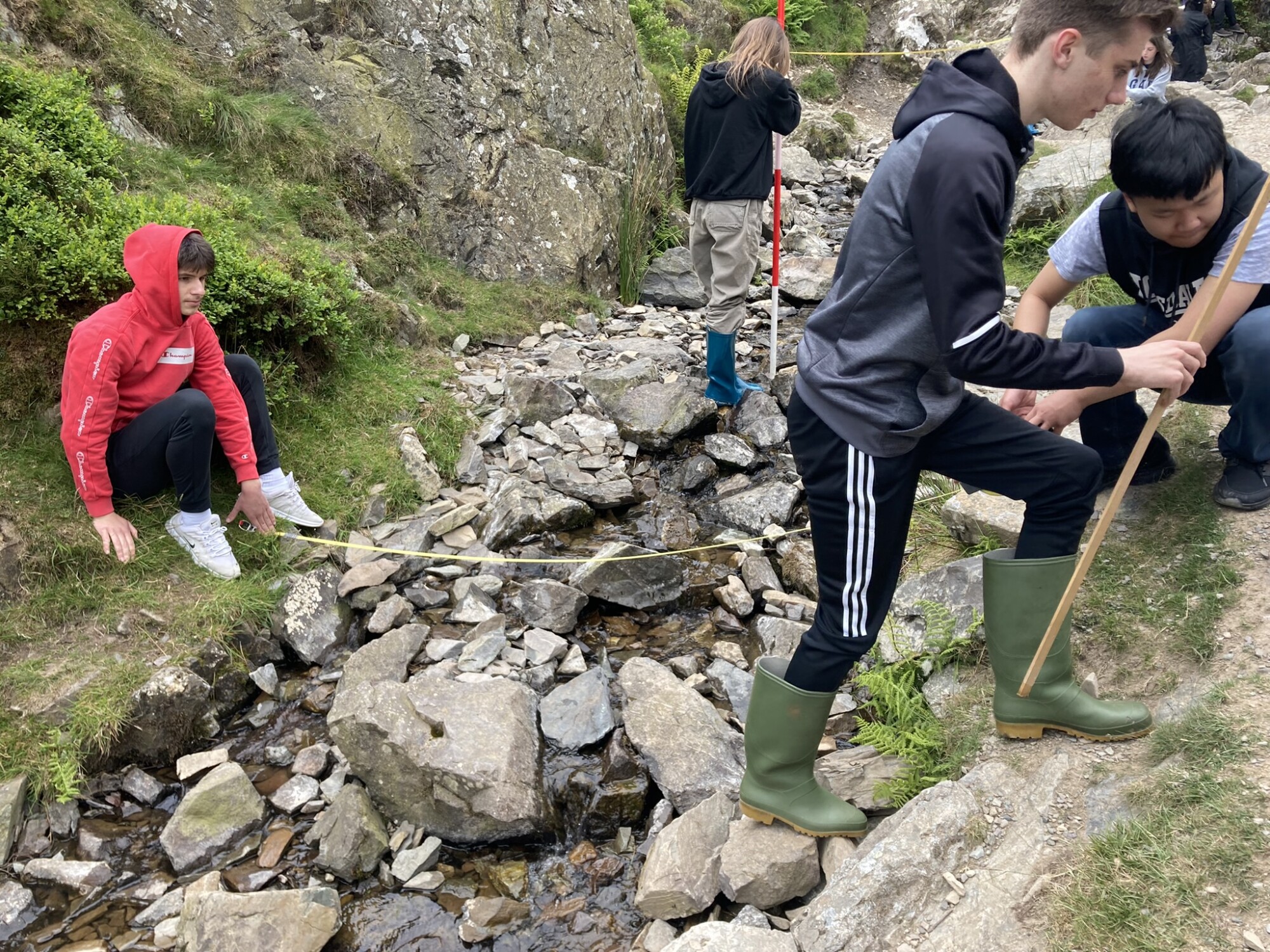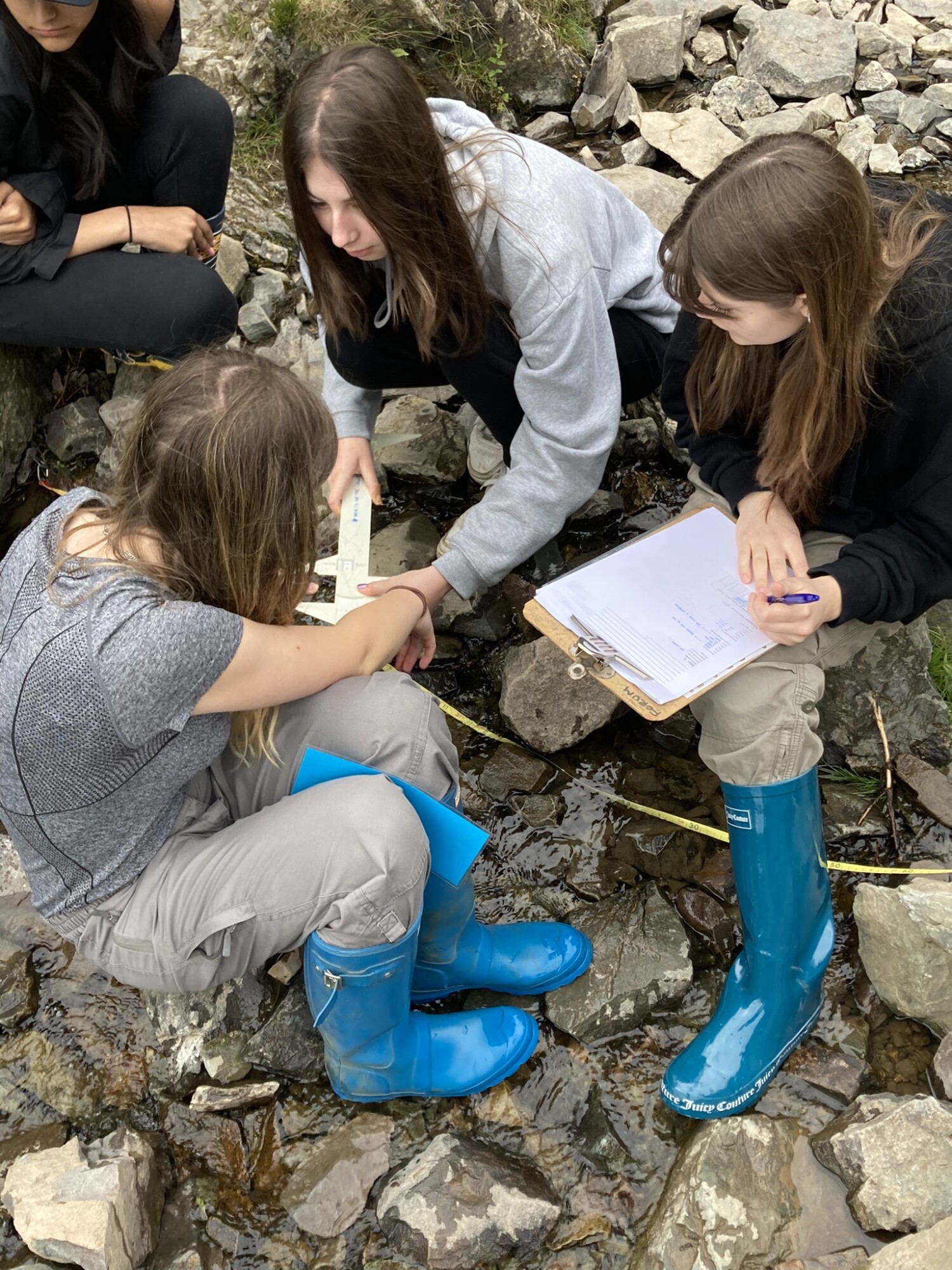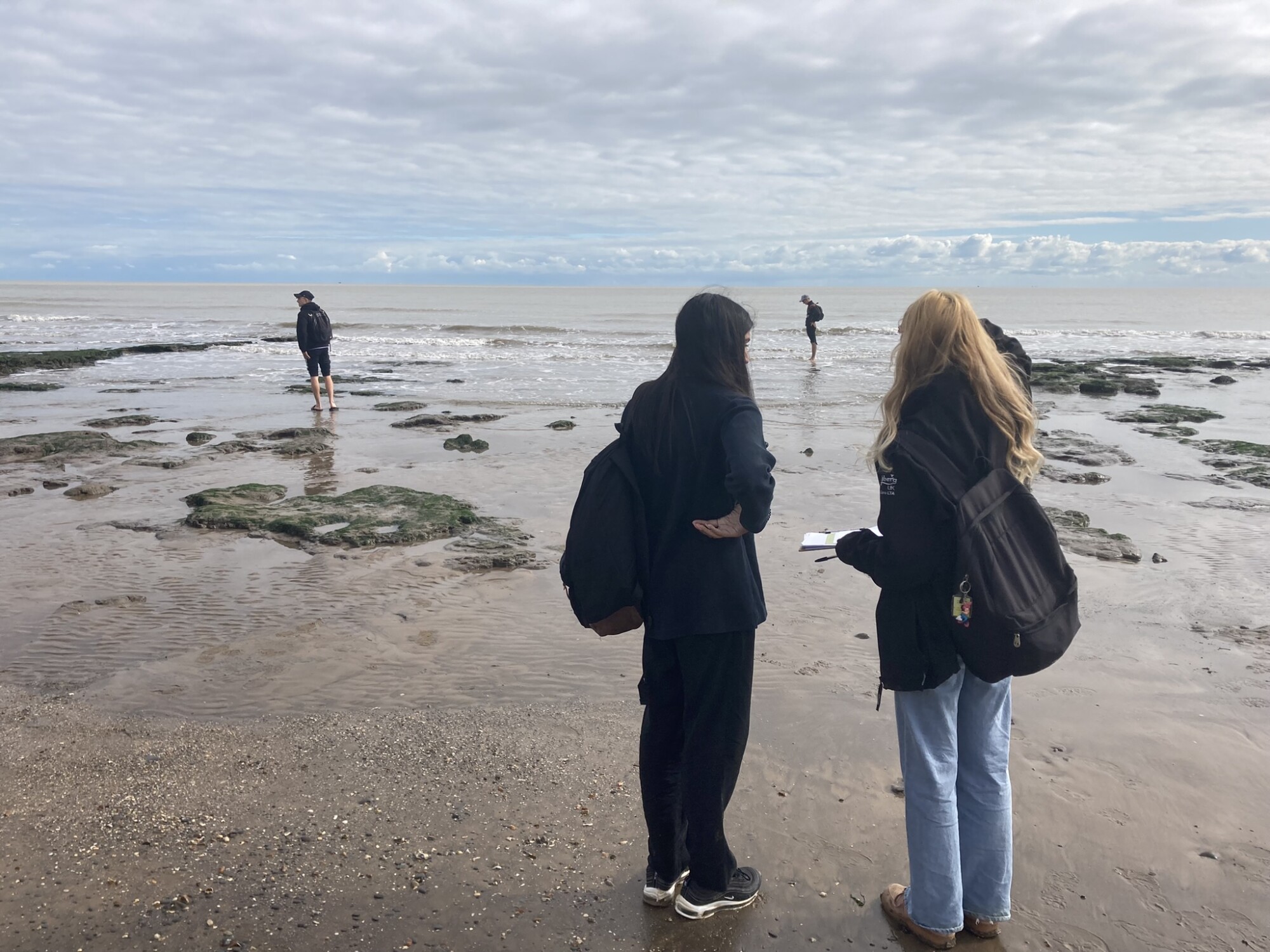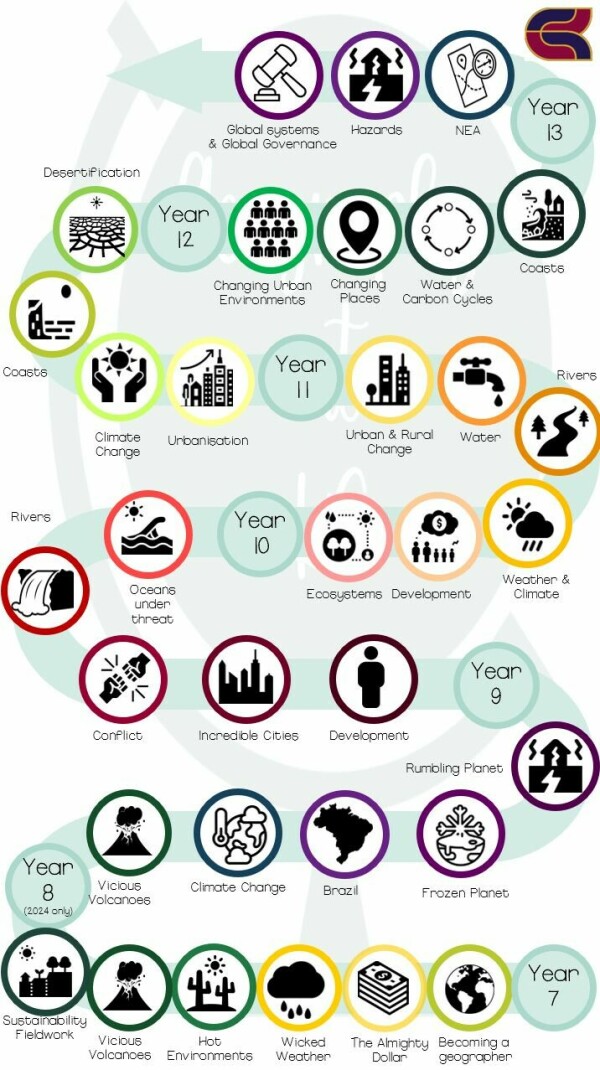Geography
Faculty Introduction:
Through our rich and varied geographical journey we hope that as many students as possible continue their study of Geography into Key Stages 4 and 5.
We will explore culture, be creative and inspire curiosity through our studies of the world, its landforms and its people. Our curriculum is broad, balanced and inclusive paving the way for students to be confident in their own voice as well as understanding the voices of others.
Our geography curriculum provides opportunities for students to further their experiences of the world through extra and super curricular activities, providing them with character and currency alongside developing their leadership and employability skills.
By teaching through a de-colonising and anti-racist lens we want students to understand their world and not only relate to their local community but to our national and global communities. Students will be exposed to more than the single story and understand the danger of only seeing one view of a location.
Through our golden threads of sustainability, systems and processes, development, interdependence, inequality, globalisation, biodiversity and resilience students will be exposed to a rich, diverse and challenging curriculum which underpins their knowledge of other areas of the curriculum. After all, without Geography you are nowhere.
We aim to prepare students for the world of tomorrow, creating global citizens who feel empowered to live sustainably and protect the future as well as to dream big and aspire to travel and discover our beautiful planet.
Our key objectives
Our three key objectives are:
1. To help students to develop their geographical knowledge and understanding.
2. To introduce students to geographical enquiry and develop problem-solving and investigative skills.
3. To help students develop a sense of identity through learning about the UK and other countries and the relationships between them which will help them to develop their own informed opinions and attitudes.

